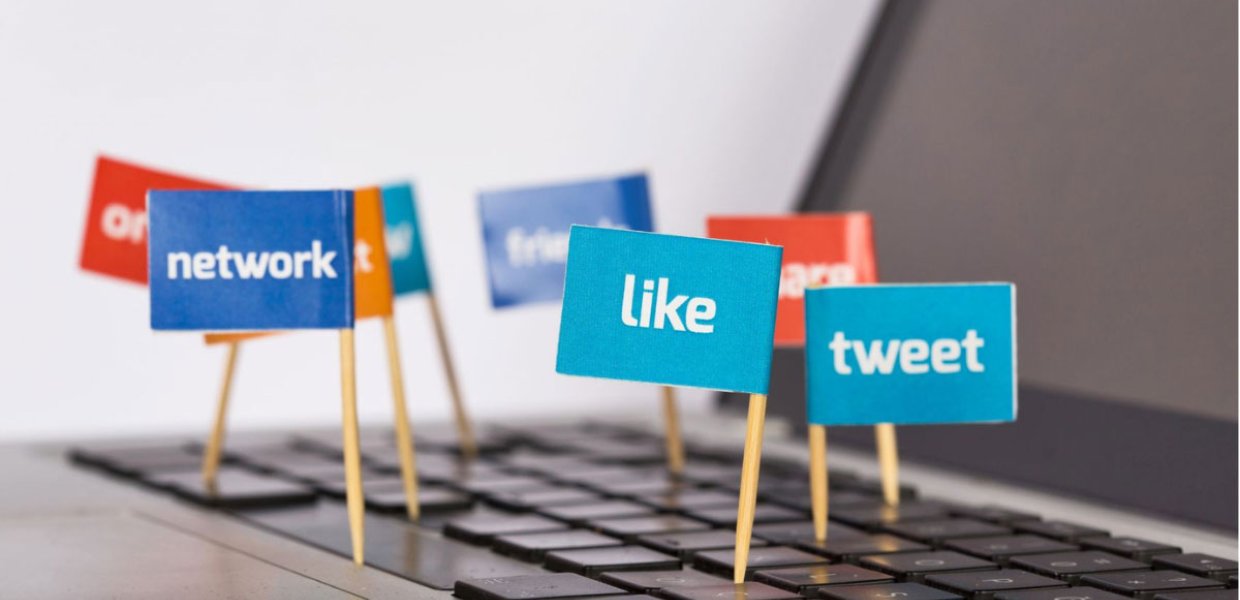In a world dominated by all things digital, the internet — social media, specifically — frequently infiltrates our everyday actions, thoughts, and even our mental health. With a career centered around technology and a 13-year-old daughter who would spend the majority of her free time scrolling through Snapchat, TikTok, and Instagram if she were allowed, I’ve become hyper-aware of the effects the toxic environment of social media can have both on our personal lives and society as a whole. Although it is intended to be a space to share the most joyful moments of our lives or your favorite comical meme, social media often breeds negativity and encourages harmful habits such as “doom-scrolling” and adopting unrealistic expectations of lifestyles, body image, materialism, and more.
According to Pew Research, about 64% of adults in the United States agree that social media has an overarchingly negative effect on our country today. Whether this is through implanting false political narratives in vulnerable minds or chronic cyberbullying of younger generations, social media can have a drastic impact on uniquely vast audiences that would not have been able to be reached elsewhere. As the world becomes increasingly reliant on technology with the expansion of the internet from web2 to the already booming world of web3, it is important to address the harmful effects of social media and the internet now before it becomes an insurmountable concern for parents, law enforcement officials, business leaders, and educators around the world.
Several nonprofit organizations have been established to work to resolve the toxicity of social media since the internet was made public in the 1990s. The Organization for Social Media Safety, for instance, is the first consumer protection organization focused exclusively on social media and works to protect against all of its related dangers, including cyberbullying, hate speech, sexual harassment, the spread of propaganda and more. Many organizations work to protect and support younger internet users and provide them with the information they need to navigate their online lives and the internet safely, including Common Sense Media, Enough is Enough, and Connect Safely.
Aside from getting involved with these organizations, there are many other ways to address the negativity of the online world without having to go completely cold turkey off the internet. Many digital media companies are making a point to integrate positivity into social media users’ timelines, including internet-first animation studio Invisible Universe. which develops and debuts original IP in partnership with high-profile celebrities and artists.
The start-up’s first and best-known animated character, Qai Qai, is created in collaboration with Serena Williams and is “living” proof that there is still good to be found on the feeds of TikTok, Instagram, and beyond. Qai Qai’s contagious personality and knack for always being on trend have captured fans’ hearts around the world, earning her over 4 million followers across social platforms. With an abundance of wildly unrealistic beauty standards and body images piling up on the timelines of TikTok especially, social media accounts like Qai Qai provide a positive community for children through her diverse and inspiring voice as well as much-needed representation on social platforms. Despite the toxicity found on social channels, companies like Invisible Universe give me hope that the next generation, including my own daughter, will not be completely destroyed by the internet’s downsides.
To avoid the trap of social media negativity, make a conscious effort in your own online habits. Limit your screen time, avoid going on social media right before bed, and unfollow any accounts that are not promoting positivity on your feed. Although technology has in many ways changed our world for the better and has single-handedly made many amazing societal advancements possible, it is important to remember the immense power the platforms hold unless you are confident with your “real life” self.
